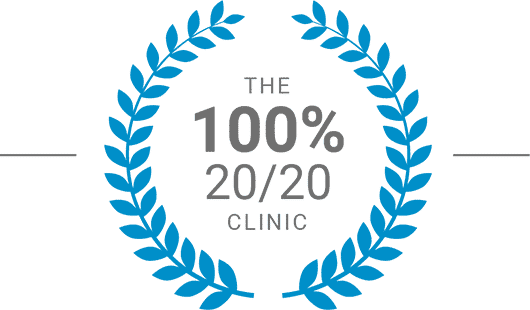Book Your Free Consultation
Mr David Allamby
MD, FRCOphth, FRCS
An implantable contact lens (ICL), or a Phakic Intraocular Lens, is similar to a traditional over-eye contact lens. Instead of sitting on the outside of the eyes, however, an ICL is surgically placed within the eye. They sit between the iris and the natural lens permanently. ICL eye surgery is used to treat myopia (nearsightedness), hyperopia (farsightedness), and astigmatism (curved cornea).
ICLs operate in much the same way as traditional lenses but without the need to be removed or cleaned. But who is suitable for an implantable contact lens?
ICLs can be an excellent option if you were looking at laser eye surgery but were found unsuitable for a laser-based procedure.
Implantable contact lens (ICL) surgery can be a suitable option for a range of individuals seeking vision correction.
However, suitability and eligibility for implantable contact lenses depends on several factors, and a comprehensive evaluation by an experienced eye surgeon at Focus Clinics is essential to determine candidacy.
It's important to note that each individual's eyes and needs are unique. A thorough evaluation by an experienced eye surgeon is necessary to determine candidacy. During the evaluation, your surgeon will assess your eye health, refractive error, corneal thickness, and other factors to provide personalised recommendations. We will also discuss the potential benefits, risks, and alternatives to help you make an informed decision about your implantable contact lens.
Implantable contact lenses don’t need to be cleaned. Whilst there is no way to remove them at home, the process is reversible if you need other eye surgery, such as cataract removal. Artificial lenses are built with high UV protection and are known to improve night vision, compared to LASIK for high myopia.
The insertion process does not impact the health or structure of the eye, as other surgeries may. There is no laser-induced dry eye or thinning of the cornea. The incision made to insert the lens is also self-healing.
Implantable contact lenses improve your vision without needing glasses or other intrusive elements. See below for more examples of what a Phakic Intraocular Lens does for suitable candidates.
Any kind of eye surgery comes with risk. Implantable contact lenses are no different, and your surgeon will explain the specific potential roadblocks to you.
It's important to remember that while these risks exist, many of our patients achieve improved vision and quality of life through implantable contact lenses.
Thorough pre-operative assessments and discussions with an experienced eye surgeon are essential to determine your candidacy and understand the potential benefits and risks of the procedure. Your surgeon can provide personalised guidance based on your specific situation.
In the hands of a safe and experienced provider like Focus Clinics, you can rest assured that the risks are accounted for, and the chance of a problem occurring has reduced significantly.
After an initial consultation to ascertain the nature of your eyes and the right treatment, we may recommend that ICL is best for you.
If ICL is the right path, both eyes can be treated on the same day or within seven days.
You will be given strong anaesthetic and dilating eye drops, and potentially a sedative. The implantable lenses will be folded into an insertion device, and placed into the eye through a small incision (less than 3mm). It will then be rotated into the correct position.
You will be kept under observation for a few hours, to ensure that your vision and eye pressure are correct. Another check-up will be performed the following day, and you will also be prescribed a round of steroid and antibiotic eye drops to enable healing.
Focus Clinics are specialists in outstanding results. We have a unique 100% success rate for 20/20 vision for short-sighted LASIK. This impeccable record is important to us — a 98% success rate is no good if you fall into that unlucky 2%.
We work hard to ensure that your eyes are healthy, as shown by a 5/5 top rating on TrustPilot. That’s the highest trust rating out of every ‘eye treatment’ clinic.
Thinking about ICL surgery? Book your free telephone consultation with one of our expert eye surgeons today and discuss the costs of ICL surgery.
Book a FREE* Consultation
To get a better idea of how we can help you, and also the different types of services we offer, book a consultation now.

100% 20/20 vision
Focus Clinic has a remarkable 100% success rate for 20/20 vision. We know of no other clinic that has matched these results. There is a big difference between, for example, 98% and 100% success, especially if you are in the 2%.

10 year guarantee
Your 10 Year Guarantee means you can return at any time if you have additional questions on the quality of your vision. If you have distance vision correction for short-sight then any repeat laser eye treatments to correct a return of myopia in the first 10 years are included free of charge.*

Most trusted eye treatment clinic
We have the highest trust rating of any ‘eye treatment’ rated clinic, according to independent review site TrustPilot. With an outstanding 9.9 out of 10, when it comes to your eyes, choose the clinic that actual patients trust the most.
*Terms and conditions apply, excludes any age-related changes and conditions unrelated to the primary treatment